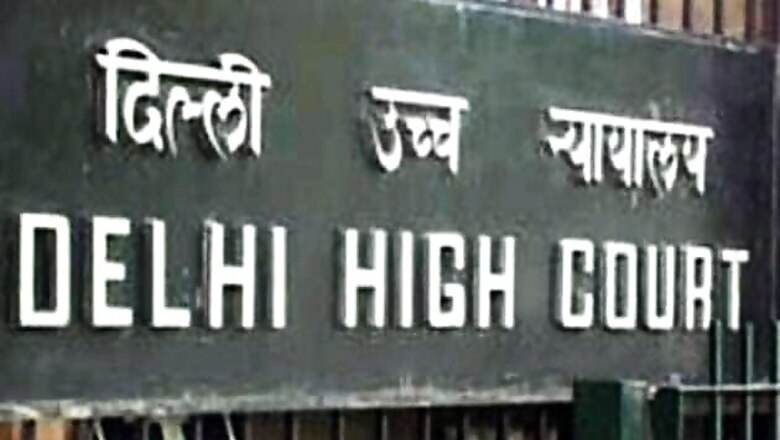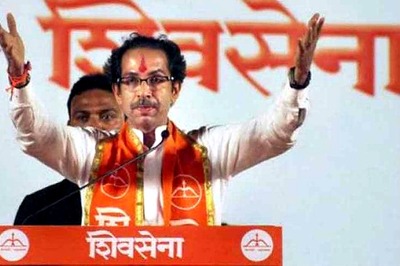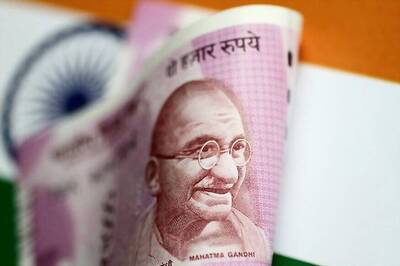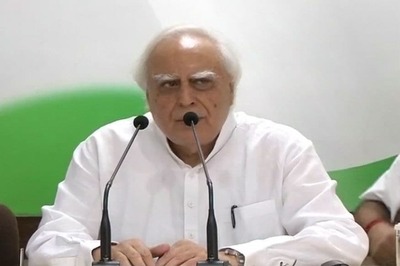
views
New Delhi: E-rickshaws will remain off the roads for now with the Delhi High Court on Friday refusing Centre's request to grant interim nod for plying them despite it filing draft guidelines for framing of rules for these vehicles.
Putting its foot down, the court said that battery-run e-rickshaws will have to comply with the law and they cannot be allowed to ply without registration, insurance and valid driving licenses of their drivers.
"We are not a banana republic. We are among the few vibrant democracies of the world, which are developing. We may not be as rich like some other countries, but can ensure compliance of the law," the bench of justices BD Ahmed and Siddharth Mridul said.
After the court had earlier said that it cannot allow these vehicles to ply unless guidelines to regulate them are in place, the Centre on Friday submitted the 'broad framework of guidelines for making rules for e-rickshaws'.
It sought two months' time for putting in place the rules for these over 50,000 vehicles, which have been banned by the court, and requested for interim nod to allow them to ply on municipal and arterial village roads in the national capital.
The Ministry of Road Transport and Highways said that besides the draft guidelines, it has also formed two panels to recommend draft rules to govern e-rickshaws.
Additional Solicitor General Pinky Anand, appearing for the Centre, said there are various proposed actions including that the e-rickshaws will not ply on "high speed" roads and their maximum speed would be less than 25 km per hour with maximum capacity of four persons and 50 kg of load.
"We will be happy to help you (Centre), but it has to be done within the four corners of the law. The drivers of such vehicles must have driving licences. The vehicles must be registered and insured. Do you expect the court to do things which is not permissible in law," the bench said.
When it was submitted that the ban relates to the livelihood of thousands of e-rickshaw owners, the court said, "We are also concerned for them. But, we are also concerned for those who are inside and outside the e-rickshaws as well. The point is they are motor vehicles under the Motor Vehicles Act and cannot be allowed to run like this."
"Do you want us to suspend the operation of the Motor Vehicles Act. Can we do that?," it said. The ASG cited an earlier judgement by which illegal mobile towers were allowed to remain with certain conditions.
"We will do the needful within two months. For the interregnum period, the e-rickshaws can be allowed to operate," she said, adding that a lot of things are to be done to ensure registration and issuance of driving licenses.
But as the court did not relent, the ASG sought sometime to re-work the proposal and the matter was listed for hearing on August 11.
The court is hearing a petition filed by Battery Rickshaw Welfare Association seeking review of an earlier order to ban e-rickshaws on the roads in the national capital. The high court on July 31 had ordered a ban on plying of e-rickshaws in the national capital, saying they are illegally running on Delhi roads and "prima facie a hazard to other traffic as well citizens".
During the day, the Ministry of Road Transport and Highways submitted the 'broad framework of guidelines for making rules for e-rickshaws' and sought court's nod to allow them to play till the time the proper rules are put in place.
"The finalisation of these rules may take two months due to compliance of procedural modalities and effective deliberations for framing such rules," the draft guidelines said.
The e-rickshaws will run at a maximum speed of less than 25 km per hour with maximum capacity of four persons and 50 kg of load, it said.
"Three-wheeled vehicles with motor power as specified by the central government (less than approx 650 to 1,000 watts to carry the specified load at a specific maximum speed) be regulated with a set of rules within the MV Act which will be easier to implement ensuring road worthiness of vehicles, easier to register," it said.
There will be triennial renewal of registration of e-rickshaws and it will be given to only drivers who hold a valid licence, the draft guidelines said.
The compensation to the accident claim victims will be given as per provisions of the Motor Vehicles Act, it said.
"As technology improves, the society craves for value addition for vehicles. Hence, there should be option to the three-wheeled manually-pulled rickshaws to replace these with affordable and convenient e-rickshaws," it said.
The ASJ said that so far as the insurance of such vehicles is concerned, the e-rickshaws association has decided to created a corpus of Rs 10 lakh for paying insurance claims till the time the permanent steps are taken.
The court's directions banning e-rickshaws had come on a petition filed by social worker Shanawaz Khan alleging that e-rickshaws, which are operated with power output of 650 to 850 watt and are designed to ferry only four people, including the driver, were carrying more than eight people at a time, endangering their lives.
The bench had earlier taken note of news reports of the death of a three-year-old boy and the injuries suffered by his mother as a result of an accident involving an e-rickshaw.




















Comments
0 comment